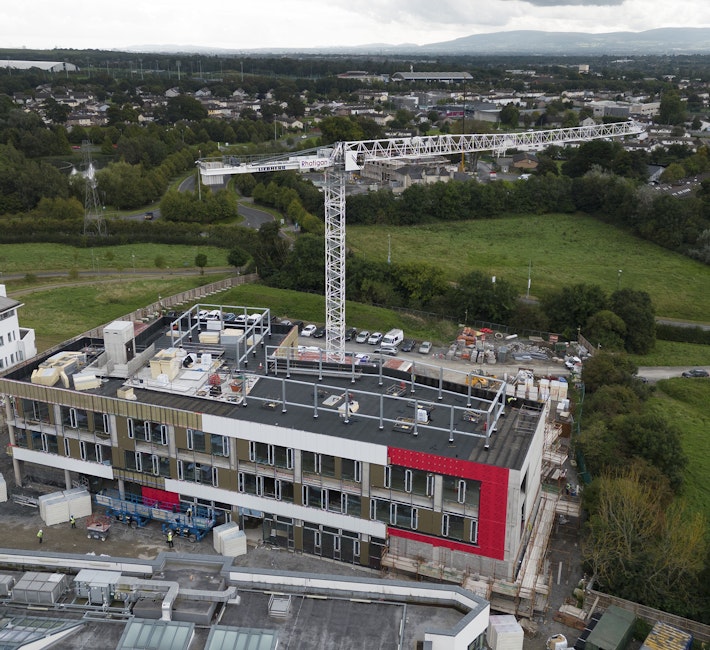- Home
- News & Views
- Myth busting: 5 things wrongly assumed about apprenticeships
National Apprenticeship Week is a key part of Curtins’ Learning and Development calendar and as part of this national campaign, we get the opportunity to celebrate and shout about apprenticeships and the opportunities they provide.
With the theme for 2023 being ‘Skills for Life’ there is no better time to reflect on how apprenticeships support in the unlocking of individuals potential through knowledge development and transferable skills that support a rewarding and successful career.
Through a turbulent few years navigating the pandemic, Brexit, and a growing need to address the climate change crisis, the UK’s workforce demographic and skill sets have highlighted that action is needed to futureproof our economy by encouraging talent into the construction industry and in particular, engineering.
We need to attract diversity into our industry and spotlight the fantastic careers that can be found in engineering. To do this, we need to continue working hard to challenge the ‘apprenticeship myths’ and break down perceived barriers for people wanting to enter into vocational training.
In this blog, I challenge 5 myths I hear commonly cited as reasons as to why apprenticeships aren’t feasible or accessible.
1. Apprenticeships are all low paid.
To support this narrative, Virgin Media O2 have recently released a survey suggesting almost half (47%) of people thought apprenticeships were only temporary roles and 60% felt they would not mean job security.
Here at Curtins we historically have and continue to utilise apprenticeships as a core part of our talent strategy. We recruit full time apprentices, pay industry competitive salaries and offer great staff benefits to all our employees, including apprentices. We also don’t recruit via any sort of fixed term contract.
2. Apprenticeships are for young people only.
We are proud that we recruit apprentices of any age and use apprenticeships as a way of upskilling our staff, whether they’re seeking to progress to an engineer from technician, or in our business support functions where apprenticeships provide an opportunity to transfer into another department. An example is one of our Office Managers was able to move into our Legal team and retrain through a Paralegal Apprenticeship.
3. Apprentices are given the admin tasks to keep them busy.
False! We give our apprentices hands on experience from day one through formal inductions, software training and shadowing in our teams. Apprentices also get straight into impacting local and national skylines, creating a better place for us all to live and work.
As well as getting quickly experiencing the role and how it will develop, apprentices will likely split their working hours between on-the-job training (80% of the week) and classroom-based study (20% of the week) – usually at a college, university or potentially with a training provider, either on site or online.

4. Apprenticeships in careers such as engineering don’t give you transferable skills.
Apprentices will learn so many skills that will enable them to progress in work and open doors to a range of exciting jobs. As part of our apprenticeships, apprentices are expected to demonstrate knowledge, skills and behaviours which can include things like communication, teamwork and management which prepares them for the next steps in their development.
5. I don’t have a GCSE in English or Maths so I’m not eligible to be an Apprentice.
Depending on the type of apprenticeship, the apprenticeship provider may support the individual with any extra training required to get them to the right level of education before the end of the apprenticeship.
The key benefit of apprenticeships is that it opens up opportunities for anyone to either leave school or pivot in their career. “Earn whilst you learn” is the motto, and by gaining so much on the job experience, apprentices will develop skills every single day, and apply learning, ask questions and be positively challenged in their roles.

To sum up
For the construction industry, there is still work to do on improving our talent pipeline, but by continuing to evidence and support apprenticeships through permanent, quality and well-paid jobs we will be making headway in placing ourselves in a stronger position to meet future engineering skills needs through ‘skills for life’ providing social and career mobility for the majority.
National Apprenticeship Week is just one campaign for Curtins where we continue to make noise about the value our apprentices bring to the business and society.



